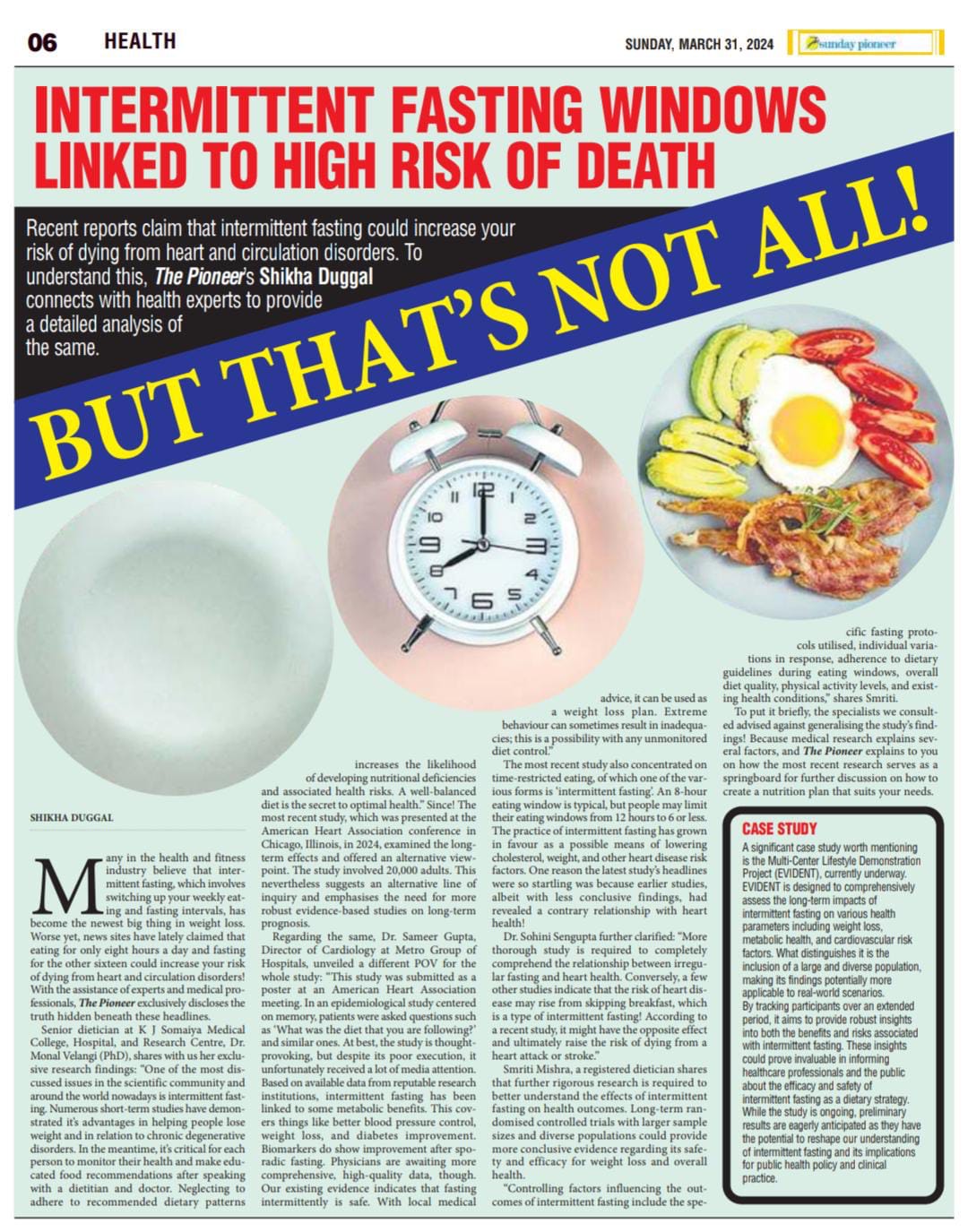Intermittent Fasting has gained popularity as a weight loss strategy, but its health implications, particularly its association with a 91% higher risk of death, have sparked significant debate and scrutiny. Critical questions emerge regarding the methodologies that led to such a conclusion, the need for further research to clarify these findings, and the examination of other factors that might influence the outcomes of intermittent fasting. Additionally, the exploration of its long-term impact on health, the controlling factors that could affect its efficacy and safety, and the limitations of current studies are paramount. A notable investigation into these questions is the ongoing Multi-Center Lifestyle Demonstration Project (EVIDENT), which aims to provide comprehensive insights into the real-world implications of intermittent fasting.
To understand the complex landscape of Intermittent Fasting and its health implications, we combine several pivotal inquiries: How did the claim associating intermittent fasting with a 91% higher risk of death come into question, and what methodologies were scrutinized? Given its popularity as a weight loss method, what steps can be taken to reassess and potentially overturn this alarming statistic? What are the potential long-term impacts on health, what factors might control these outcomes, and what limitations exist within the current body of research? Lastly, how does the EVIDENT project contribute to our understanding of these issues, and what preliminary findings might it offer?
- This claim came under scrutiny due to a study published in JAMA Internal Medicine in 2017, suggesting that intermittent fasting might lead to a 91% higher risk of death among participants. However, subsequent analyses revealed limitations in the study design, such as potential confounding variables and biases, calling the validity of these findings into question.
- To overturn this misconception, further rigorous research is required to understand the effects of intermittent fasting on health outcomes. Long-term randomized controlled trials with larger sample sizes and diverse populations could provide more conclusive evidence regarding its safety and efficacy for weight loss and overall health.
- The long-term impact of intermittent fasting remains uncertain and warrants careful consideration. While some studies suggest potential benefits such as improved metabolic health and longevity, others raise concerns about its effects on nutritional adequacy, mental well-being, and sustainability over time.
- Controlling factors influencing the outcomes of intermittent fasting include the specific fasting protocols utilized, individual variations in response, adherence to dietary guidelines during eating windows, overall diet quality, physical activity levels, and existing health conditions.
- Limitations of current research on intermittent fasting include the reliance on observational studies, which can only establish associations rather than causation, inconsistent definitions and protocols for fasting regimens, short duration of many studies, and potential biases in participant selection and reporting.
- One notable case study is the ongoing Multi-Center Lifestyle Demonstration Project (EVIDENT), which aims to evaluate the long-term effects of intermittent fasting on weight loss, metabolic health, and cardiovascular risk factors in a large, diverse population. Preliminary results from this study may provide valuable insights into the potential benefits and risks of intermittent fasting in real-world settings.A significant case study worth mentioning is the Multi-Center Lifestyle Demonstration Project (EVIDENT), currently underway. EVIDENT is designed to comprehensively assess the long-term impacts of intermittent fasting on various health parameters including weight loss, metabolic health, and cardiovascular risk factors. What distinguishes EVIDENT is its inclusion of a large and diverse population, making its findings potentially more applicable to real-world scenarios.By tracking participants over an extended period, EVIDENT aims to provide robust insights into both the benefits and risks associated with intermittent fasting. These insights could prove invaluable in informing healthcare professionals and the public about the efficacy and safety of intermittent fasting as a dietary strategy.While the study is ongoing, preliminary results are eagerly anticipated as they have the potential to reshape our understanding of intermittent fasting and its implications for public health policy and clinical practice.My inputs were taken by team Pioneer:
In conclusion, the debate surrounding intermittent fasting and its association with health outcomes underscores the necessity for nuanced, rigorous research. The initial claim of a significantly higher risk of death highlights the complexities involved in nutritional epidemiology and the need for careful interpretation of data. As the EVIDENT project and similar studies progress, they promise to shed light on the multifaceted effects of intermittent fasting, guiding evidence-based recommendations and informing public health discussions. Ultimately, the journey to understanding the true impact of intermittent fasting on health is ongoing, requiring a balanced consideration of emerging evidence and a commitment to scientific inquiry.


